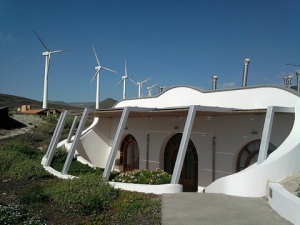Brain drain in Spain: interview with one of the young professionals who has left the country.
April 3, 2011 4 Comments
In an article about “Spain’s lost generation of graduates“, The Guardian recently reported that rising unemployment was leading to an exodus of young Spaniards looking for better opportunities abroad on a scale not seen since the 1960s. This massive departure of educated and professional young people looking for better pay or living conditions is a source of concern for many, although the exact numbers are not easy to figure out according to a recent article in Actualidad Económica (in Spanish).
Experts disagree both on the volume and the consequences of this “brain drain”. They agree on the causes as unemployment among graduates aged 29 or under is running at 19%. Regarding the consequences, some experts are extremely pessimistic, considering that the amount of money spent on the education of those graduates is lost as many will tend to stay abroad, while others believe that those young people will some day come back to Spain with a set of personal, professional and languages skills that will benefit to the economy and to the society.
Sustainability is directly affected by this “exodus” as Human Capital Management is a key element to build a sustainable business. Companies should include in their sustainability strategy the way they plan to get the resources they need in the long-term. Nothing can confirm the prediction that those young professionals will come back to Spain after they’ve developed their skills abroad. At least, a company shouldn’t rely this hope. Instead, a sustainable business should include in their recruitment strategies how they will target Spanish professionals who live abroad.
I’ve interviewed Alex, one of those young professional who recently decided to move to Germany, to understand why he decided to leave Spain and what spanish companies can learn from this:
Aequology: Hello Alex, can you tell us who you are and where you work?
AM: Hi, my name is Alejandro Martinez, and I am employed by www.misterspex.es, Spanish division of www.misterspex.co.uk , German leader in online sales for prescription glasses, sunglasses, and contact lenses. The company, a personal project launched by Dirk Graber with little capital investment, currently has over 140 employees. A successful business story and a new capital injection has led Mister Spex to venture on an international strategy. After launching projects in France and the UK, the company has recently placed its eye on the Spanish market because of its promising future in e-commerce on a mid-term basis. Mister Spex’s headquarters, located in Berlin, host fully autonomous IT, logistics, customer service and marketing departments. I personally work in the marketing department as an SEO specialist, and combine these tasks with website content creation and management.
Aequology: Why did you decided to move to Germany?
AM: Coming to Germany was both a personal and a professional project. Although I had been in love with Berlin for a few years, I wasn’t strong or brave enough to go for it. The tremendous financial crisis in Spain and the fact that I wasn’t enjoying my personal project as a translator brought me to travel to the only European that enjoyed economic growth in 2010. Besides a promising environment, numerous government aids and an alternative lifestyle that I am extremely attracted to, Berlin hosts numerous start-ups that make the effort of taking risks and train motivated people who are eager to learn and renew themselves. My experience tells me that this kind of approach would be absolutely inconceivable in Spain. Generally, German companies do not focus on short term benefit, but undertake actions believing they will be positive in the long run.
Aequology: How’s the workplace in Germany compared to Spain?
AM: Besides German companies’ predisposition to undertake risks, I have sensed that managers and administration boards are much more open to suggestions. If you have a good idea, they will take it and make the best possible effort to execute it. Besides, I feel lucky because, although I work in the marketing department and Scrum methodology was initially conceived for the IT departments, Mister Spex decided to apply it to the whole company. This method allows projects coming from management to be carried out in a transversal way, communication is 100% open, and, consequently, motivating your peers, feeling integrated in the group, and identifying mistakes becomes much easier. To some extent, this reflects that, indeed, innovating in Germany is much easier than in Spain.
I would also like to highlight that e-commerce, an incredibly attractive field for all countries due to its low investment costs and high profitability, was solidly established in Germany quite some time ago and is now working at full speed. Te constant news informing about the German’s urgent need for technicians and computer engineers are the best indication of this fact. Focusing earlier on this sector has allowed Germany to remain one of most powerful and solid economies, since they have managed to diversify their economy.
Last, I would like to highlight that in Germany it is the companies who assume the biggest risk. In order to have a hired person with a net monthly wage of 1.000 Euro, companies must provide private insurance, pay higher taxes, and provide social benefits, among other things. This does not only allow workers (who, in turn, pay 40% of their salary in taxes) to be aware of the social network supporting them and preventing them from being socially excluded if they become unemployed, but is also a useful tool for the German economy to maneuver because the government always has available funds. In my opinion, the German’s financial system is the key to them being, by large, the strongest country in Europe despite the high immigration rate and tremendous social costs, which would be inconceivable for other countries. I can’t think of a better place to be in Berlin right now!
Aequology: Thanks Alex!









